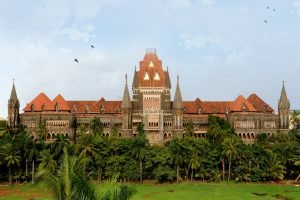Administrative law is basically a law which regulates the actions of administrative authorities or agencies. It is mostly derived from the Constitutional law pertaining to the administration. It aims at developing a relation between the public and government by regulating itself as the time requires. As per the Indian perspective, administrative law is almost judge-made law, because it changes by the court case by case in the form of guidelines.
Administrative laws contain all aspects of administrative actions as it can work as legislative as it has delegated powers given through legislature but in limits, it can also work as executive as it enforces the law or implements the law, it comes in the role of the judiciary when there is need to make quick decisions but there can be judicial review of those actions if there is anything controversial in that decision. Administrative law regulates all these actions and ensures remedies against the arbitrary actions of administrative agencies.
Foundation of Administrative Law
Administrative law may be identified on the four foundation stones:-
1. Checking constructive or abusive powers of the administrative authorities
2. Ensuring citizens a just and fair solution or determination of disputes
3. Protect from unauthorized curtailing of rights of the citizens
4. Accountability of the powers.
Ensuring the protection of citizens over the arbitrary actions of the administration and also focusing upon the judicial review of actions or decisions taken by the administration to fulfill that protection against the actions of the administration are main objects of the administrative law.
Definitions of Administrative law
▶ According to K.C. Devis, Administrative law is a law which is related to powers and procedures of administrative agencies, including specially the law related to judicial review of administrative actions.
▶ According to Ivor Jennings, Administrative law is relating to the administration which helps in the determination of the organization, powers and duties of the administrative authorities.
▶ According to Austin, Administrative law is to determine the ends to and the modes in which the sovereign powers shall be exercised. It shall be directly or by the subordinates.
▶ According to Prof. H.W.R. Wade, Administrative law is the law which controls the powers of the government.
▶ According to C.K.Takwani, Administrative law is the branch of constitutional law which deals with the powers and procedures of the administrative authorities.
Nature of Administrative law
Administrative law is the branch of public law which defines the relation between individuals and State. But, it is not a law in the true sense like other laws such as property law or labor laws. It is also not like private law which deals with relations of individual inter se. It is a law to administer the administrative authorities and prevent them from making any arbitrary decisions.
Administrative law deals with the organization, powers and duties of the administrative authorities and also the procedure followed by the officials while exercising their powers. It is limited to the law which confines the power of administrative authorities while exercising their functions. It also provides remedies in the favor of the public when rights of the public are encroached upon.
In India, administrative law is almost judge made law. Judiciary interprets laws according to the need of time and issues guidelines for such. It affects administrative law and makes it more strong and beneficial. It is a branch of the Constitution which regulates all three branches i.e. legislative, executive and judiciary in the same way Administrative regulates all authorities and protects them from corrupt practices. Its main purpose is to focus on the judicial review of administrative actions.
Scope of Administrative law
Literally, Scope means an area of study or the variety of subjects that are being discussed or considered. Administrative law is almost judge-made law, so it changes according to societal needs but in the guidance of the basic principles. Hence, the scope of this law is wider in comparison to other laws. Administrative law determines the powers and duties of the organization and the administrative authorities. The scope of administrative law is wide enough because, with the requirement of time, Administrative Law incorporates and culls out new rules and regulations. The concept of administrative law is founded on the following:-
1. Principles of natural justice and rulemaking
2. Notion of the Rule of law
3. Law conferred power to administration as per Article 13 of the Indian Constitution
4. Accountability of powers, where no power is absolute or uncontrolled
5. There should be a reasonable restriction on the regulations of such powers
6. The power of the court to issues writs
7. Opinions of public and mass media.
Conclusion
As administrative law incorporates new rules and regulations as per the requirement of time, its scope is wide enough to incorporate all such rules and regulations. In general, it is a judge made law, so it varies according to societal needs. The scope of the administrative law is wide as it can act as all three branches of the government. It can make law, implement the law and can also take decisions whenever required. But the review of the decision can be taken and on the basis of that review, the court can issue guidelines if there is any contradiction in that decision.
Lastly, Administrative law is to administer & protect the public from arbitrary actions of the authorities in power. For a democratic country, there should be a strong and honest administration system. Administrative law provides that strength by making laws for authorities. Administrative law makes the working of the administration system more clear and more smooth. How to exercise powers, extent of those powers, how to keep those powers in limits while exercising such powers, procedures followed by the officials – all these things are covered in administrative law.
The answer to who can be a citizen of India has been simplified by our intern, Mr. Shasyesh Tiwari. He has been assisting the team in bringing informational legal blogs.








